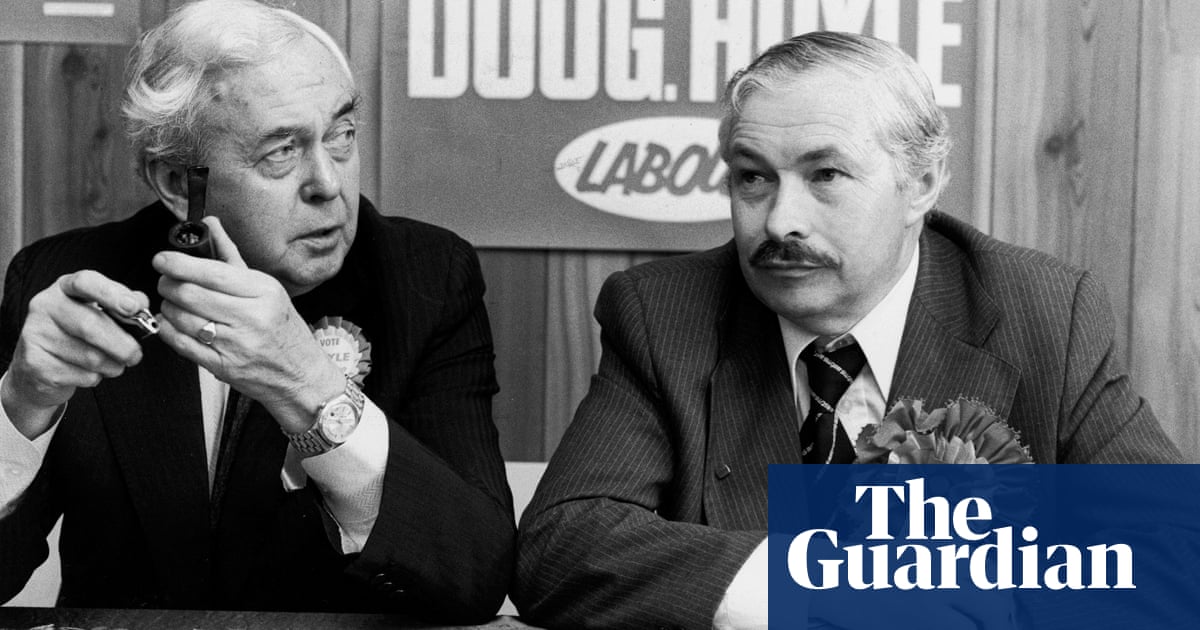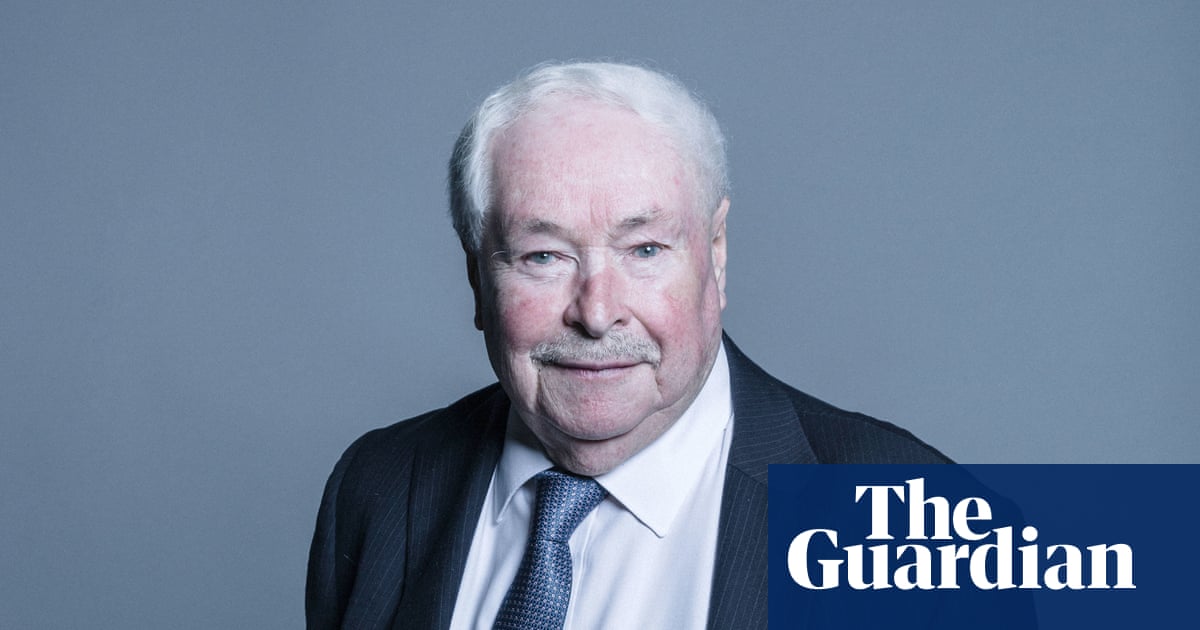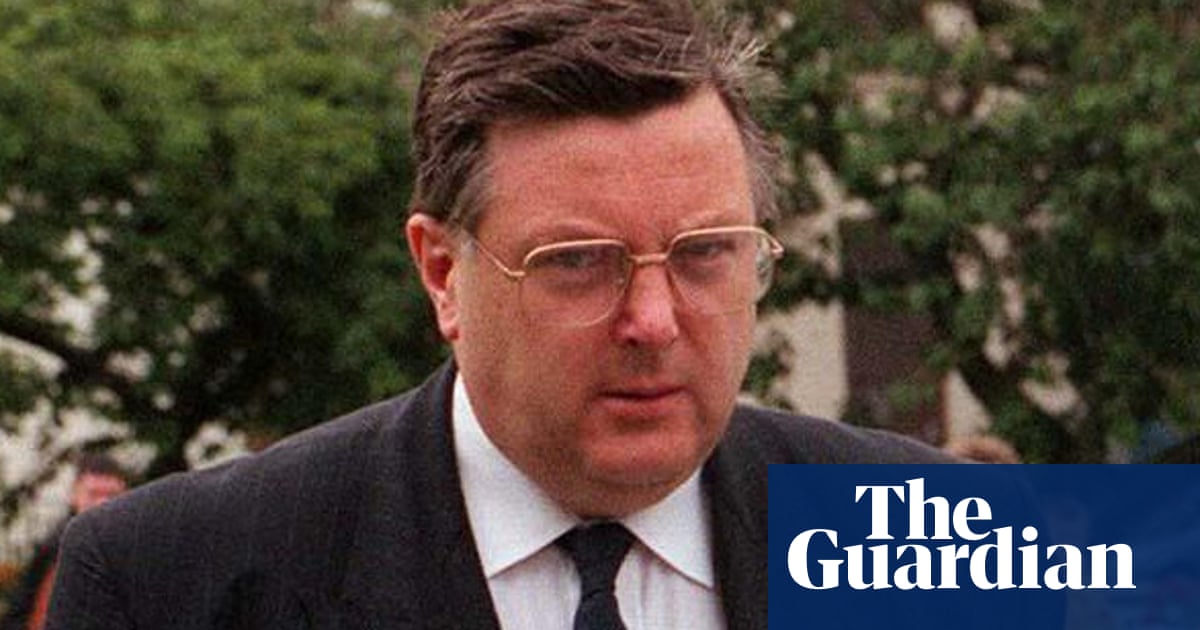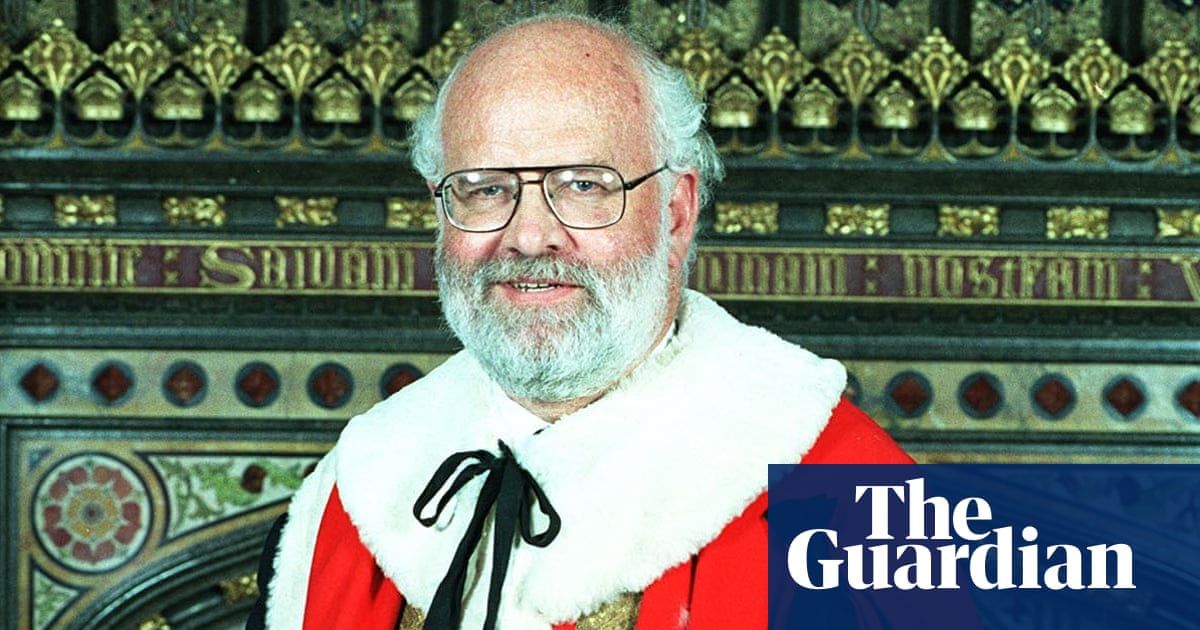
The former chairman of the parliamentary Labour party, Doug Hoyle, Lord Hoyle, who has died aged 98, earned his place in the history of British politics in 1981 when he narrowly held what should have been the safe Labour seat of Warrington in a critically important byelection.
He was defending a comfortable majority against Roy Jenkins, one of the founding members of the newly formed Social Democratic party, standing in that party’s first parliamentary election. Although Hoyle won by 1,759 votes, his truculent denunciation of the SDP campaign in his victory speech at the count was a measure of how anxious the Labour party had been about the outcome.
The significance of the byelection was that a victory for the SDP in Warrington could have provided an irresistible momentum for the new party as a replacement for Labour, then in the throes of its protracted internal dispute over constitutional reform and leftwing entryism.
Hoyle had lost his previous seat of Nelson and Colne in the 1979 general election and had been chosen as the candidate for the byelection because of his perceived leftwing credentials as president of the powerful white-collar union ASTMS (Association of Scientific Technological and Managerial Staffs) and as a member of Labour’s then highly influential national executive committee.
The reality was, rather, that he had already developed the considerable skills of a political populist who could sense the direction of travel within his own party, just as well as he understood the concerns of the wider electorate. In Labour terms that led Hoyle to be one of the sponsors of Neil Kinnock as the party’s leadership candidate in succession to Michael Foot in 1983, to win election as chairman of the PLP when John Smith took over in 1992 and then to secure the endorsement of Tony Blair when he became leader in 1994. Blair needed a skilful tactician in that post who was seen as being independent of his personal court, and represented the interests of Labour MPs but who was nevertheless loyal to the leadership.
Hoyle sat as a backbench MP for 21 years, serving as a member of the select committee on trade and industry, 1987-92. He was first elected in October 1974 – his result was the first Labour gain on election night in the second general election of that year – and swiftly won a reputation as a politician with a view on most things.
He sometimes picked somewhat easy targets, like criticising Princess Margaret for “not pulling her weight” or members of the Thatcher family. He had an instinctive sense of the state of public opinion and could also be relied upon for a pithy quote in the press on a wide range of issues of public concern, if not always of great moment, such as public houses overcharging for tonic water.
He was, however, particularly consistent throughout his political career in opposition to Britain’s membership of Europe. In his maiden speech in October 1974, he chose to speak on the topic of a referendum on the issue, as had been proposed in Harold Wilson’s government programme on the opening of that parliament and as was subsequently staged the following spring. Hoyle quoted Professor AV Dicey on the subject, citing the academic’s assertion that a referendum was “the only scheme for giving the constitution any permanence which is at once effective and unmistakably democratic” and claiming that this would be the best means to resist what Hoyle saw as the transfer of power from the British parliament to Brussels.
A further subject on which he was similarly constant was the need for reform of the House of Lords and it was to his credit that he continued to make this case after accepting Blair’s invitation to become a peer when he took office in 1997. Hoyle had already announced his intention to stand down as an MP in the general election at which his son, Lindsay, was expected to be elected as the Labour MP for the neighbouring Lancashire seat of Chorley.
According to the family it was Lindsay who persuaded his sceptical father to go to the Lords and fight for change from the red leather benches. “I don’t believe in it,” father had initially said to son about the Lords. On arrival there, he spent two years as a government whip, and when once again on the backbenches he resumed his efforts to make the case for change.
In a strong speech in 2005, he urged the Lords to reform their procedures in keeping with the present century. “If we do not make our minds to change, change will come anyway,” he warned them, albeit somewhat optimistically. He retired from the Lords last year.
Hoyle was born in Coppull, near Chorley, the son of Leah (nee Harvey) and William Hoyle. His father was a shop assistant at the Co-op and a social member of the local Conservative club. This clearly had little impact on his son, who joined the Labour party in 1945 as Clement Attlee swept to power at the end of second world war.
He attended Adlington Church of England school and Horwich and Bolton Technical Colleges and started work as an engineering apprentice for British Rail in Horwich. Five years later, in 1951, he moved to Manchester as a sales engineer and in 1953 he joined a company in Salford as a marketing executive, working there until elected to Westminster. He fought his first election unsuccessfully in Clitheroe in 1964. He was then selected for Nelson and Colne, which he won at the third attempt in October 1974, having lost in 1970 and February 1974.
After he won Warrington at the byelection, the constituency boundaries were redrawn and he represented the new seat of Warrington North until he decided to stand down. In 1977 he had become president of ASTMS, a post he held until 1981 and again between 1985 and 1988. He was vice-president between 1981 and 1985.
Hoyle married Pauline Spencer in 1953 and their only child, Lindsay, was born in 1957, named after Lindsay Hassett, a middle-order batsman who was vice-captain of the Australian tourists in the 1948 Ashes, a team which was undefeated in all 34 matches it played in England. A lifelong cricket enthusiast, Hoyle was president of Adlington cricket club from 1974. He was also a keen supporter of rugby league, chaired Warrington rugby league club from 1999 until 2010 and was thereafter president.
Pauline died in 1991. Hoyle is survived by Lindsay, who became speaker of the House of Commons in 2019.
Eric Douglas Harvey Hoyle, Lord Hoyle, politician, born 17 February 1926; died 6 April 2024












